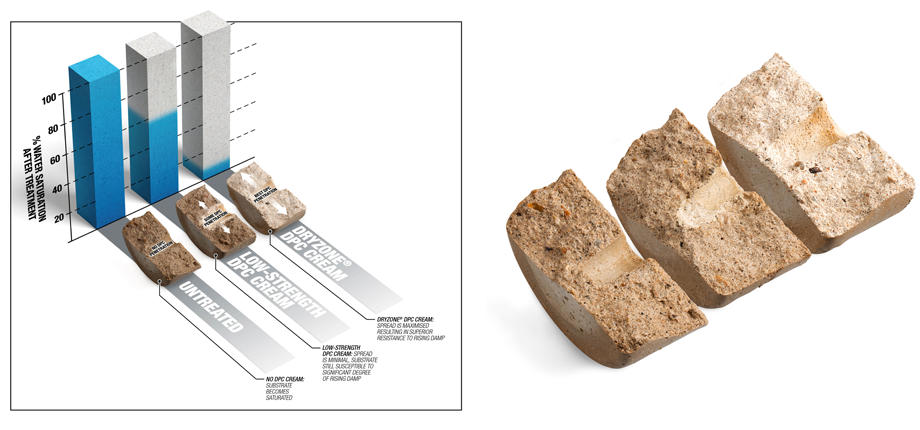Homes throughout the UK may be at risk from rising damp despite being equipped with chemical damp-proof courses (DPCs), according to research from Safeguard Europe – the UK’s leading specialist in damp-proofing and waterproofing technology.

Laboratory tests at its research and development laboratory have proven that DPC creams with low concentrations of silicone will ultimately prove ineffective.
DPC creams work because they contain silicone that penetrates the pores of the mortar in masonry and brickwork to form a waterproof seal. Some DPC creams on the market contain as little as 10% silicone. Yet UK testing and certification takes no account of the silicone content of these creams and their consequent performance.
Only comparative testing on a range of products will demonstrate these differences, so Safeguard pitted its own high-silicone content products, Dryzone Damp-Proofing Cream and Dryzone Damp-Proofing Rods, against two DPC creams that contained 20% and less than 15% silicone respectively. All four products are certified by a leading UK test house.
The experiment consisted of preparing five pieces of lime mortar, each with a hole in the centre. They were left for four weeks and then each was injected with one of the DPC treatments, with one piece left untreated as a control for comparison.
They were left to cure for a further four weeks and then split in two to reveal the extent of the waterproof zone. The results were in line with earlier research by the University of Portsmouth, showing that the size of the waterproof zone around the injection holes is relative to the amount and strength of active material injected.
The low strength creams do not create a waterproof zone as large as that produced by high-strength products such as Dryzone Damp-Proofing Cream or Dryrod Damp-Proofing Rods, which diffuses silicone throughout the pores of the mortar when inserted into drill holes.
This means that the low strength creams are more likely to fail because the further the spread the more effective the treatment. If the creams do not spread far enough then they will still allow moisture to rise in those areas they do not reach.
- Log in to post comments















